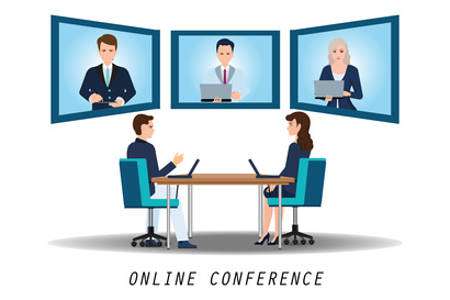When you look back at some of the greatest figures in history, one thing in common unites them – they all tend to be fantastic communicators. Say what you will about their politics, but there is no denying that Winston Churchill, Barack Obama, Martin Luther King Jr., and Indira Gandhi were all expert orators. Their ability to gauge the pulse of their audience, identify their needs, and weave a magnificent story made them the legendary leaders that galvanised nations and made history.

Before you start fashioning yourself as a great world leader, you first need to focus on your own style of communication.
What is Great Communication?
The first step to modifying your own style is to understand great communication and be able to define it. One of the first problems you encounter is that the phrase ‘good communication skills' is so overused that it becomes nearly impossible to actually parse it and break it down.
While it isn't easy to define in a short and snappy sentence, some of the key components of great communication are listed below:
·
The ability to listen well – If you don't effectively listen to your intended audience to find out what they need and want, there is no way that you can meaningfully communicate with them. What you say will not be relevant to them, and it will simply go in one ear and out the other.
·
Summarising what you've heard – Once you have listened to the other party, you should take a moment to reflect and repeat what they told you back to them. This prevents misunderstandings and ensures that you actually understood what they have said to you.
·
Catering your message to your audience – You don't speak to a room of children the way you do to a room of adults, do you? A great communicator makes countless daily decisions about how to perfectly cater their communication style to their intended audience. For some people this is an effortless and natural instinct, but it can be learned, practiced and honed.
·
Using real world examples to illustrate your point – No one wants to listen to a laundry list of platitudes and generalisations. The best communicators use real world examples in order to illustrate their point and make sure that their audience can relate.
·
Asking open ended questions to assess comprehension – If you ask your audience if they understand what you have just said, they will usually just respond by nodding their heads or saying ‘yes' whether this is true or not. They don't want to seem like the odd man out who doesn't ‘get it!' Asking a series of thoughtful, open ended questions is a far better way to suss out who got your message the first time around, and who might need some more explanation.

If you'd like to learn more about communication, why not take a look at how we can help?
Boost your communication skills with our online courses.
RRP from $89 – limited time offer just $12.99
What prevents Great Communication from happening?
Communication can break down so easily that it is a wonder that we actually ever connect as individuals! Some of the main things that can break down the communication process include:
·
Not listening to the other person – We all think we know best at times, and we can barrel ahead without taking time to listen to the other stakeholders in a situation. This is the number one cause of poor communication.
·
A failure to understand what the other party needs you to know – Even if you dedicate time and energy to listening to another individual, if you misunderstand what they have to say, you can really mess up the communication process. This is why the mirroring stage (wherein you repeat back what the other person said to you) is so very important.

·
Being in a rush to get to the action – Lengthy explanations and diatribes are boring for some people, and it can be easy to rush past the communication process to get to the ‘meat' of things and take action. But, just like the old adage says, ‘haste makes waste!' Skipping over the communication process will often cost you time in the long run, as you have to go back to correct easily avoided mistakes.
What are the benefits to being a Great Communicator?
Being a great communicator comes with many benefits, as you can likely imagine from the illustrious list at the start of this article. Certain prestigious professions rely on having stellar communication skills, such as law, journalism, politics and public relations. However, no matter what your profession, being a strong communicator has many benefits, including:
·
Working more harmoniously with others – A great communicator is able to identify conflict, investigate problems, and act as mediator between disagreeing parties. By being able to effectively communicate your point of view, you can clear up misunderstandings and bridge gaps between yourself and others.
·
Helping others to see your point of view – If you are an expert in your field, one of the most frustrating things about your job can be guiding others to a basic understanding of your work. If you are a strong communicator, you can more easily explain the intricacies of your field in plain, easy to understand language.
·
Making less mistakes or errors – Imagine a doctor who does not listen to a patient who is describing their symptoms. They are not going to be able to diagnose accurately, are they. And then they open themselves up to making mistakes which could lead to malpractice suits and all sorts of problems.
·
Winning more contracts and gaining more work – Communication is especially important for freelancers and small business owners. Without a great sense of communication, how else can you sell others on the strength of your work?
As you can see, building your communication skills should be one of your top priorities, no matter what field you are in.
Learning to communicate clearly, effectively and persuasively will always help you in all aspects of your life, including your career, romance and socialising. So, get out there and start making yourself understood!
P.S. In case you're unsure about how good your own communication skills are, we have a free, personalised test that you can take in 4-5 minutes, and it can be found
here.

If you'd like to learn more about communication, why not take a look at how we can help?
Boost your communication skills with our online courses.
RRP from $89 – limited time offer just $12.99




























